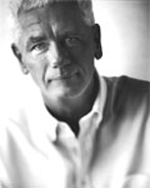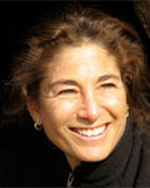Balancing spirituality and science, the lineup for last week’s FACES conference in Washington, D.C., was remarkable: Roshi Joan Halifax, Emiliana Simon-Thomas, Kristin Neff, Barbara Fredrickson, Frank Ostaseski, Christine Courtois, Tara Brach, John Briere, and Chris Germer. I was worried that mindfulness had been talked about a bit too much of late, but the speakers brought fresh insights and research to the conversation, particularly when it came to compassion. Here are some of them:
 “Compassion is fundamentally about seeing. How do we see life as whole when we live in a world that is challenged by so much woundedness?”—Roshi Joan Halifax, Ph.D.
“Compassion is fundamentally about seeing. How do we see life as whole when we live in a world that is challenged by so much woundedness?”—Roshi Joan Halifax, Ph.D.
Roshi Halifax, the abbott and head teacher at Upaya Zen Center in Santa Fe, and the author Being with Dying (Shambhala), challenged the audience when she asked, “How do we go into the mind of others and our own suffering so that compassion can be nourished? How do we not help or fix, but serve?” Her answers were powerful and practical as she broke the elements of compassion down into a five-part acronym, ABIDE:
- Attention and Affect
- Balance
- Intention and Insight
- Discernment
- Embodiment
Roshi Halifax explained, “There is no compassion without attention” and “The body is the machine of compassion.” She guided the audience through a meditation that helped us embody her teachings: “What is it to have a strong back and a soft front and let the situation move you?” Strong back, soft front…strong back, soft front… I’ve been meditating for a long time, but encountering this new practice shifted something in me. Try it and see what happens.
 “The more you integrate self-compassion in your life the more satisfying your life will become.”—Kristin Neff, Ph.D.
“The more you integrate self-compassion in your life the more satisfying your life will become.”—Kristin Neff, Ph.D.
One of the leading voices in the field of self-compassion research, Kristin Neff is the author of Self-Compassion (Harper Collins) and associate professor of human development and culture in the educational psychology department at the University of Texas at Austin. She defines self-compassion as “treating yourself as you’d treat a dear friend” and breaks it down into three components:
- Exercise self-kindness (not self-judgment)
- Recognize our common humanity and that our lives (and we) are imperfect
- Opt for mindfulness by being with instead of suppressing or running away with painful feelings
She recommended strengthening our self-compassion through gestures like holding our hands over our hearts and exercises like the Self-Compassion Break.
 “Compassion is the feeling that arises when you witness another’s suffering and want to help.”—Emiliana Simon-Thomas, Ph.D.
“Compassion is the feeling that arises when you witness another’s suffering and want to help.”—Emiliana Simon-Thomas, Ph.D.
Emiliana Simon-Thomas, the science director of the Greater Good Science Center, where she oversees the Expanding Gratitude project, was a new name for me but one I’m not likely to forget. She divided compassion into a series of processes:
- Feeling physically “moved” by another’s suffering
- Recognizing that there’s no cost or threat to yourself in your response to suffering
- Seeing yourself as effective and instrumental, capable of helping
- Engaging your intrinsic nurturing system—allowing vulnerability
- Seeing other people as fundamentally the same as you are
- Being motivated to help
And she balanced these processes with a collection of compassion fitness practices, including:
- Inhale, then exhale slowly, making your outbreath twice as long as your inbreath. This strengthens the vagus nerve, which helps to regulate heartbeat and stimulate oxytocin production.
- Focus on the task at hand and transcend yourself. People who are engrossed in what they are doing, experiencing “flow” tend to be happier and more compassionate.
- Exercise will-power and delay gratification. By holding off on immediate gains and using mindfulness you can make experiences more meaningful.
And my favorite: “Allow yourself to experience awe.” 
“Love is a single act performed by two brains.” —Barbara Fredrickson, Ph.D.
The Kenan Distinguished Professor of Psychology at the University of North Carolina, Chapel Hill, and author of Love 2.0 (Plume), Barbara Fredrickson defined love as an interpersonally situated experience marked by a momentary increase in:
- Shared positive emotions
- Bio-behavioral synchrony
- Mutual care
- Social bonds
- Commitment
Borrowing a phrase from Nicholas Pjourriaud, she shared that “love is day-to-day micro-utopias.” And when we add awareness of suffering, this love becomes compassion.
 “Compassion is an essential element of our being that arises to guide us in the territory of suffering.”—Frank Ostaseski
“Compassion is an essential element of our being that arises to guide us in the territory of suffering.”—Frank Ostaseski
I wept through Frank Ostaseski’s talk, and I mean that only as the highest form of praise—words like “inspiring” and “moving” are too small for his accounts of the work he does with dying people. He’s one of America’s leading voices in contemplative end-of-life care, Founder of the Metta Institute, co-founder of the Zen Hospice Project, and author of the Being a Compassionate Companion audio series. His intent was to “shake loose the calcification in our hearts”—and with statements like “When I walk into a room where someone is dying, everyone I know who has ever died is in that room” and “Love is both the motivation and the destination,” he genuinely achieved this.
 “What is it you are unwilling to feel? Our healing comes from when we move toward what’s difficult.”—Tara Brach, Ph.D.
“What is it you are unwilling to feel? Our healing comes from when we move toward what’s difficult.”—Tara Brach, Ph.D.
According to Tara Brach, a clinical psychologist, Buddhist teacher, and author of Radical Acceptance and True Refuge (Bantam), that difficulty often abides in a place of unforgiveness. With forgiveness comes compassion, and to that end she led the audience through several guided meditations. The one that resonated most for me was when she suggested we find a place of separation from someone through blame and name it. In doing so we have to move toward the core pain of separation. “We’re forgiving for the freedom of our hearts—not to keep our hearts imprisoned,” she reminded us. “Forgive…forgiven. Forgive…forgiven” became a mantra—one that anyone can draw nourishment from.




1 Comment
Jeri Parker
Wonderful.